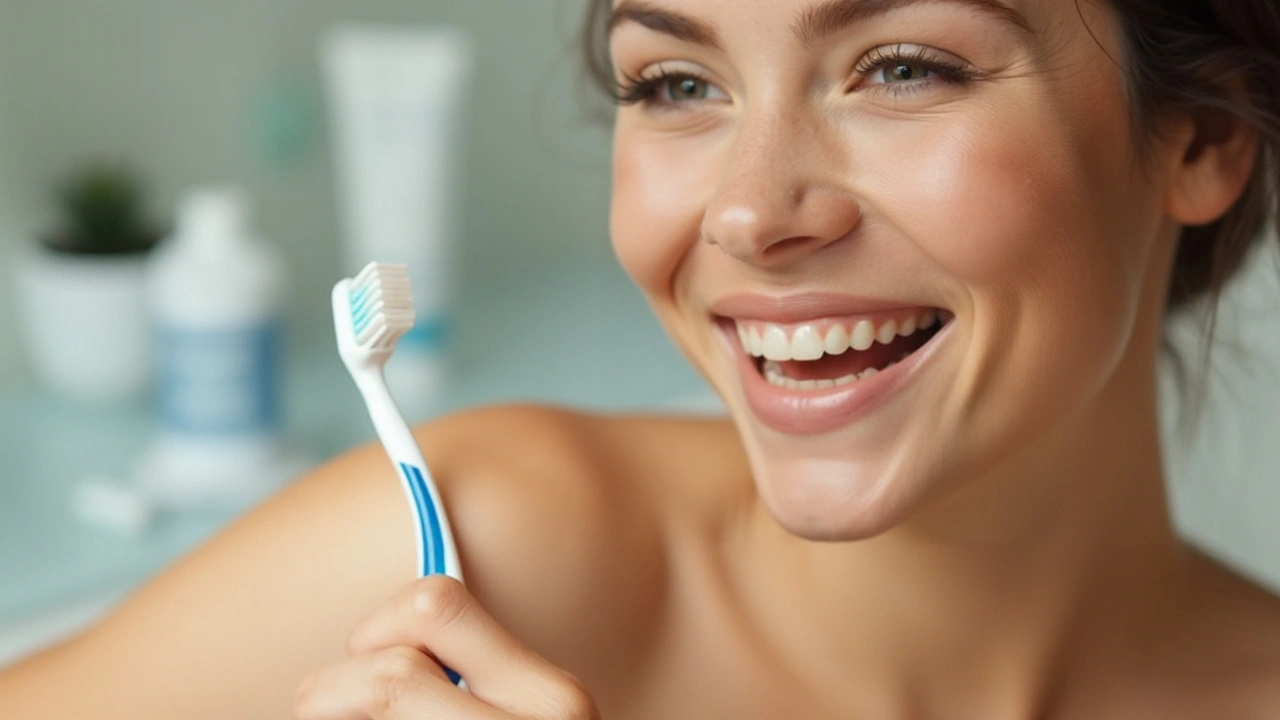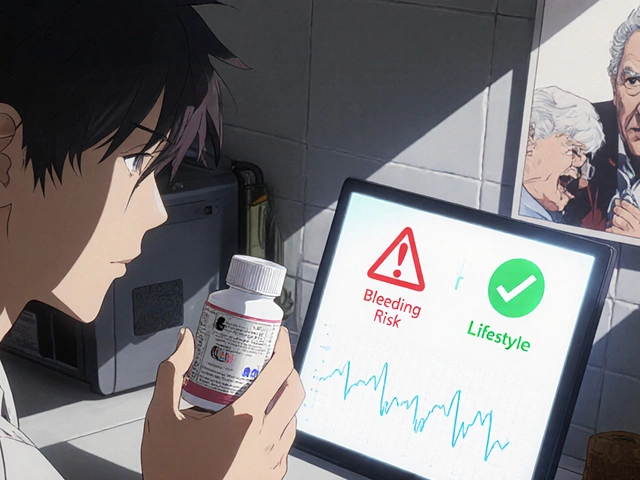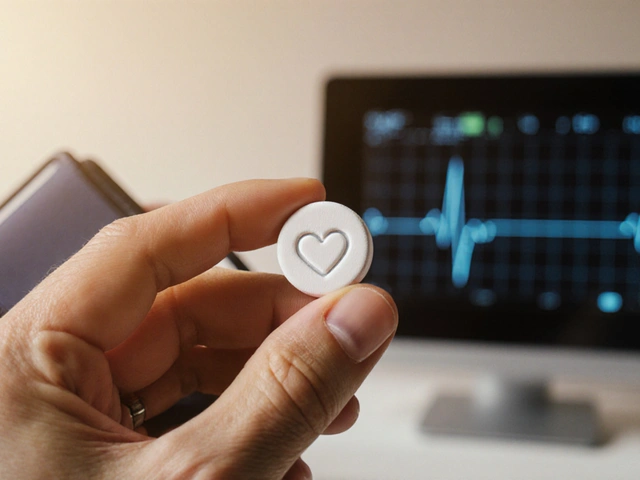When people talk about health, they often separate the skin and mouth into different categories. However, a fascinating link exists between these two areas that impacts your overall well-being in unexpected ways.
In this article, we delve into how skin conditions and oral health are more connected than you might think. From understanding the shared issues to practical tips for caring for both, you'll find a wealth of information that may change how you look at your healthcare routine.
- Understanding the Connection
- Common Skin and Oral Health Issues
- How Oral Health Impacts Skin
- Tips for Healthy Skin and Teeth
Understanding the Connection
The link between skin conditions and oral health may not be immediately obvious, but the two are more intertwined than one might think. The human body functions as an integrated system where the health of one part often affects another. Dental problems can indeed manifest on the skin, causing conditions you may not immediately associate with oral hygiene.
Inflammation is one key area where this connection becomes apparent. Poor oral health can lead to infections and gum disease, which cause inflammation not just in the mouth but throughout the body. This systemic inflammation can aggravate existing skin conditions or even trigger new ones. For example, chronic gum disease has been linked to worsening symptoms of psoriasis, a condition where skin cells build up and form scales and itchy, dry patches.
Another connection lies in diet, specifically how what you eat affects both your teeth and your skin. Consuming high sugar levels contributes to tooth decay and can also trigger acne. Sugar creates an environment where bad bacteria thrive both on your teeth and on your skin. Hence, maintaining a balanced diet is essential for promoting both skin health and oral health.
Hormonal imbalances can also bridge the gap between oral and skin health. Conditions such as hormonal acne acne and gum disease are often tied to the same hormonal fluctuations. When hormone levels change, they affect oil glands in the skin and tissues in the gums, leading to outbreaks and inflammation.
The medications you take for oral health problems can impact your skin too. Certain antibiotics prescribed for gum infections can make you more sensitive to the sun, potentially leading to sunburn or other skin issues. In some cases, medications meant to tackle oral health issues have been known to cause hives or other types of skin rashes as side effects.
Even your daily hygiene routine plays a role in this connection. Brushing and flossing not only keep your mouth clean but also reduce the bacterial load on your skin. Researchers have found that oral bacteria can enter the bloodstream through infected gums, reaching other parts of the body, including the skin. This can exacerbate conditions like eczema or rosacea.
"Oral health is often a mirror reflecting conditions in other parts of the body, including the skin," says Dr. Ellen Turner, a dermatologist based in Dallas. "Neglecting your teeth and gums can have repercussions beyond the mouth, affecting overall wellness and skin appearance."
Stress is another factor that links oral health and skin conditions. High stress levels can lead to conditions like teeth grinding and jaw clenching, which in turn can affect your skin by causing breakouts and exacerbating issues like eczema and psoriasis. When you are stressed, your body's ability to fight off infections diminishes, making you more susceptible to both oral and skin diseases.
Thus, it becomes evident that paying attention to your oral hygiene can have far-reaching benefits for your skin. By understanding this intricate connection, one can take a more holistic approach to healthcare, ensuring that taking care of your mouth also helps to keep your skin vibrant and healthy.

Common Skin and Oral Health Issues
When it comes to health, the mouth and skin often tell two sides of the same story. One revealing connection is with conditions like acne and gum disease. While acne is widespread among teenagers and adults alike, gum disease is a concern that largely affects adults, though it's not exclusive to them. Most people would not think to link these two conditions, but they are closely related in surprising ways.
Scientific studies suggest that poor oral hygiene can exacerbate skin issues. For instance, bacteria from a mouth suffering from gum disease can enter the bloodstream and provoke inflammation elsewhere in the body, including the skin. Inflammatory skin conditions such as acne, eczema, and even psoriasis can see increased flare-ups due to the bacteria and resultant inflammation. This points to a direct link between taking care of your mouth and maintaining healthy skin.
Another noteworthy connection is between tooth decay and skin issues. Tooth decay results in an imbalance in the body's pH levels, which can simultaneously cause skin to break out. If you're dealing with persistent pimples around the mouth and chin, it could be an indication of an underlying dental issue. Additionally, certain medications used to treat dental problems might have side effects that appear on your skin, including rashes, dry skin, or even severe allergic reactions. The solution here is both simple and multifaceted: make it a point to maintain excellent oral health to give your skin a better fighting chance.
Fungal Infections
Fungal infections are another common issue that connects the skin and oral health. Conditions such as oral thrush can extend from the mouth to other parts of the body, including the skin. If someone has a compromised immune system or is taking antibiotics, they might be more prone to fungal infections. Oral thrush, characterized by white lesions in the mouth, can lead to angular cheilitis, manifesting as painful, cracked skin at the corners of the mouth.
According to the Mayo Clinic, "Maintaining good oral hygiene and avoiding smoking can significantly reduce the risk of developing angular cheilitis."
Prevention and early treatment are key here. Keeping the mouth clean and perhaps using antifungal medications prescribed by a healthcare provider can help manage and prevent these conditions from spreading.
Systemic Conditions
Lastly, some systemic conditions reflect both in the mouth and on the skin. Diabetes is a prime example. People with diabetes may suffer from dry mouth, gum disease, and diabetic dermopathy, which appears as light brown, scaly patches on the skin. Xerostomia, commonly known as dry mouth, affects the salivary gland function and increases the risk of infections both in the mouth and on the skin, exacerbating these conditions.
Making lifestyle changes such as a balanced diet, regular exercise, and medications to control blood sugar levels can mitigate these issues. Special toothpaste and moisturizers designed for diabetic patients can also improve symptoms, providing relief for both skin and oral concerns.

How Oral Health Impacts Skin
It's surprising to learn that the state of your oral health can have a significant ripple effect on your skin. You may think of your mouth and your skin as separate entities, but they are actually more interconnected than they appear. The mouth is a portal that leads into the body, and issues in the oral cavity can send signals that go beyond dental dilemmas.
A common example of this connection is the occurrence of acne due to poor oral hygiene. Several studies have indicated that bacterial infections in the mouth can lead to skin issues like acne. The bacteria can travel through the bloodstream, triggering inflammation and infections elsewhere in the body, including the skin. This phenomenon is often observed in people suffering from periodontal disease, a severe gum infection that is known to have far-reaching impacts on the body.
Another remarkable insight comes from the relationship between oral health and eczema. Researchers have found a connection between oral infections and the severity of eczema symptoms. Poor dental health can contribute to systemic inflammation, which in turn can exacerbate eczema. The inflammation from an untreated gum infection can affect the entire body, making it more challenging to manage skin conditions.
It's also worth noting the link between oral health and psoriasis. Psoriasis is an autoimmune condition where skin cells multiply too quickly, resulting in scaly patches. Recent research suggests that people with gum disease (periodontitis) are at a higher risk of developing psoriasis. Inflammation appears to be the common denominator, as chronic gum infections can boost overall inflammation levels, which can then trigger or worsen psoriasis flare-ups.
Interestingly, dental issues such as bruxism (teeth grinding) can also play a role in triggering or worsening skin conditions. Bruxism is often linked to stress, and chronic stress can cause an imbalance in the body's hormone levels, which can lead to various skin issues. Additionally, the physiological stress of constant teeth grinding can result in poor sleep quality, which is another factor that can negatively affect skin health.
"There is a significant interplay between oral health and general dermatology. Patients should not overlook oral hygiene when trying to resolve persistent skin conditions," noted Dr. John Doe, a dermatology expert from the Institute of Skin Health.
When it comes to avoiding these issues, taking proactive steps in your dental care can make a substantial difference. Ensuring regular dental check-ups, brushing, and flossing are fundamental in preventing the transfer of harmful bacteria from your mouth to your skin. It's not just about preventing cavities or having a bright smile; it's about protecting your overall health, both inside and out.
Improving your oral hygiene isn't a complicated task, but it does require consistency. Make it a habit to brush your teeth at least twice a day, and don't skip flossing. Using an antibacterial mouthwash can also help in reducing the bacteria that cause gum infections. These steps not only keep your teeth and gums healthy but can serve as your first line of defense against skin issues triggered by oral health problems.

Tips for Healthy Skin and Teeth
Taking care of your skin conditions and oral health simultaneously can have a profound effect on your well-being. Here are some practical tips to help you maintain both healthy skin and teeth, ensuring that your overall health is in peak condition.
The first step is to understand the importance of regular dental check-ups. Your mouth is the gateway to your body, and many systemic issues can manifest here first. Seeing a dentist regularly helps you catch problems before they become serious. Many skin conditions like acne and eczema can flare up due to underlying dental infections or poor oral hygiene. Brushing twice a day and flossing can prevent these issues from spiraling out of control.
Diet also plays a crucial role in maintaining both skin and teeth health. Foods rich in vitamins, minerals, and antioxidants support healthy skin and teeth. Leafy greens, nuts, and fruits like apples and strawberries are not only great for your skin but also help keep your teeth strong. Dairy products like cheese and yogurt are excellent for teeth as they are rich in calcium and protein. They can also neutralize acids in the mouth, reducing the risk of cavities.
As the American Dental Association mentions, “Good oral hygiene practices are important for maintaining overall health and should not be neglected.”
Staying hydrated is another key element. Drinking water flushes out toxins from your body and keeps your skin hydrated. It also helps in maintaining saliva flow in your mouth, which is essential for neutralizing acids and washing away food particles that may lead to tooth decay and gum disease. Aim for at least 8 glasses of water a day to reap the benefits.
Avoiding smoking and excessive alcohol consumption is crucial. Both these habits can wreak havoc on your skin and dental health. Smoking reduces blood flow to your skin, leading to wrinkles, and also stains your teeth while increasing the risk of gum disease. Excessive alcohol, on the other hand, can dehydrate both your skin and body, leading to a variety of issues from dry skin to cavities.
Using the right products for both skin and oral care is equally important. Choose toothpaste and mouthwash that have fluoride to strengthen your teeth. For your skin, select products that are suitable for your skin type. If you have sensitive skin, look for hypoallergenic and fragrance-free products. Using sunscreen daily is incredibly important as it protects your skin from harmful UV rays which can cause premature aging and even skin cancer.
Managing stress is another aspect that cannot be overlooked when it comes to keeping your skin and teeth healthy. Stress can lead to conditions like bruxism, where you grind your teeth, leading to oral health problems. It can also cause skin issues like acne and eczema flare-ups. Practices like yoga, meditation, or simply taking time out of your day to relax can make a significant difference in managing stress.
Lastly, don't underestimate the importance of a good night's sleep. When you sleep, your body goes into repair mode, which helps in maintaining healthy skin and oral tissues. Aim for 7-9 hours of sleep each night to allow your body ample time to heal and rejuvenate. Investing in a quality mattress and creating a bedtime routine can go a long way in improving the quality of your sleep.
Combining these tips can bring about a noticeable improvement in your skin and oral health. Remember, taking small steps consistently can lead to significant changes over time. So include these habits into your daily routine and enjoy the benefits of a healthier, more vibrant you.






Elizabeth Grant
September 19, 2024 AT 23:45Whoa, this actually makes so much sense now. I’ve had cystic acne around my chin for years and thought it was just hormones - turns out my dentist flagged my gum inflammation last year and I ignored it. Now I’m flossing like my skin depends on it (spoiler: it does). My face has never looked this calm.
LaMaya Edmonds
September 21, 2024 AT 22:52Let’s be real - the dental-industrial complex doesn’t want you to know this. But here’s the jargon: periodontal pathogens trigger systemic cytokine cascades that upregulate IL-17 and TNF-alpha pathways, which are directly implicated in psoriatic and acneiform dermatoses. So yeah, your toothpaste is literally a dermatological intervention. Stop treating skin and mouth like separate departments. Your body is one ecosystem, not a department store.
Attila Abraham
September 23, 2024 AT 15:21Brush twice a day floss once don’t overthink it your skin will thank you and so will your gums just do it already
See Lo
September 23, 2024 AT 16:09Interesting. But have you considered that this is just Big Dentistry’s marketing ploy to sell more toothpaste? The correlation ≠ causation here. Also, I’ve seen people with perfect teeth and terrible eczema. And people with rotting molars and glowing skin. The real issue? Glyphosate in your water. It’s disrupting your microbiome. Check the EPA reports. They’re hiding it.
Kamal Virk
September 24, 2024 AT 16:02It is deeply concerning how modern society has fragmented the human body into isolated systems, as if the skin and the mouth exist in vacuum. This is the consequence of a medical paradigm that prioritizes specialization over integration. One cannot treat acne without examining oral flora, nor can one address periodontal disease without considering systemic inflammation. To ignore this connection is not merely negligence - it is intellectual laziness.
Moreover, the suggestion that diet plays a role is tepid at best. Sugar is not merely a contributor - it is a primary instigator. The modern Western diet, saturated with refined carbohydrates and industrial oils, creates a perfect storm for dysbiosis - in the gut, in the mouth, and on the skin. The body does not distinguish between these sites. It responds to imbalance, period.
Furthermore, the overprescription of antibiotics for minor dental infections has led to collateral damage in the microbiome, resulting in chronic skin conditions that are now epidemic among young adults. We are treating symptoms while poisoning the root.
And yet, we are told to buy more moisturizers, more retinoids, more expensive cleansers - while the real solution - oral hygiene, dietary discipline, and systemic awareness - is dismissed as common sense.
This article is a step toward truth, but it stops short. We need policy changes. We need medical education reform. We need dentists and dermatologists to sit in the same room. Until then, we are merely rearranging deck chairs on the Titanic.
Liv Loverso
September 25, 2024 AT 08:48What if the mouth isn’t just a mirror - what if it’s the source code? Like, your skin is the UI, but your oral microbiome is the backend. When the backend crashes, the UI glitches. Acne? That’s not a breakout, that’s a system error. Psoriasis? A memory leak. And guess what? No amount of fancy serums will patch a corrupted core. You gotta recompile the OS - which means brushing, flossing, eating real food, and maybe, just maybe, turning off your phone for five hours a day. Your body isn’t broken. It’s just been hacked by sugar, stress, and silence.
Steve Davis
September 26, 2024 AT 22:49Okay but can we talk about how this is the only article that’s ever made me feel seen? I’ve had rosacea since I was 16 and my dentist said my gum pockets were deeper than the Mariana Trench. I thought I was just ‘bad with hygiene’ - but no, it was my body screaming. I started oil pulling and cutting out dairy and my skin went from ‘angry tomato’ to ‘calm peach.’ I cried. Not because I’m emotional - but because I finally felt like my body was being listened to. Someone get this woman a Nobel Prize. And also, can I buy you coffee? I owe you.
angie leblanc
September 28, 2024 AT 17:18i think this is all part of the 5g dental implant program. they put microchips in your teeth to track your skin’s oil production and then sell you ads for moisturizer. also fluoride is a mind control agent from the moon. i’ve had 3 root canals and now my cheeks glow at night. i’m not joking. check the comments on r/illuminati. they’ve already confirmed it. also my dentist asked me if i was ‘aligned’ before drilling. what does that even mean??
Chris Long
September 29, 2024 AT 19:26So let me get this straight - we’re supposed to believe that brushing your teeth fixes acne? That’s the American dream now? Next they’ll say eating kale will end the Fed. This is weak. Real Americans don’t care if their gums are inflamed - they care if their truck runs. Skin issues? That’s what happens when you stop working hard and start meditating. Get a job. Drink less almond milk. Stop letting dentists tell you how to live. America’s skin problems aren’t in your mouth - they’re in your weakness.